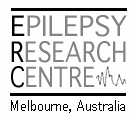Searching for a Cure
Our mission is to create a future where children and their families have easy access to genetic testing and are automatically matched to the therapy that will enable them to lead normal, healthy lives.
In a world first, scientists at the University of Melbourne are creating therapies that not only control the seizures, but also treat the underlying causes of epilepsy. For the first time, our scientists believe we have the ability to find a cure for certain forms of severe childhood epilepsy.
An Urgent Clinical Need
Epilepsy is a debilitating disease – particularly in its most deadly form, the epileptic encephalopathies. Diagnosed in infancy, these rare, catastrophic brain disorders can cause a baby to have hundreds of seizures in a single day. The impact on the developing brain is enormous, often resulting in severe intellectual and developmental disability.
For generations we have treated most forms of epilepsy with no knowledge of what actually causes the disease. Anti-Epileptic Drugs (AEDs) – which have been the mainstay treatment since 1912 – suppress the seizures but they do not treat the underlying cause. Nor do they address the many other conditions associated with epilepsy, such as learning difficulties and intellectual disability, physical disabilities, sleep disturbance, and the risk of Sudden Unexpected Death in Epilepsy (SUDEP). Moreover, AEDs are not effective for every patient – they do not control the seizures in three out of ten people living with epilepsy.
The team urgently need to find better treatments to help the hundreds of thousands of children living with severe epilepsy worldwide.
A Partnership that Transformed the World's Understanding of Epilepsy
It was Professor Sam Berkovic AC and Professor Ingrid Scheffer AO who discovered the first gene for epilepsy in 1995 and they have been at the forefront of the global battle against epilepsy ever since.
Over the course of their careers, Professors Berkovic and Scheffer have worked with thousands of children and adults living with epilepsy. They and their teams have identified a number of the genes that directly cause many different forms of epilepsy. They have also identified and characterised many epilepsy syndromes, which has already improved treatment.
Today, Professors Berkovic and Scheffer have partnered with Professor Steven Petrou who is the Director of the Florey Institute of Neuroscience and Mental Health. Professor Petrou is a globally-recognised leader in the field of precision medicine in neurogenetic disorders, such as the epileptic encephalopathies. Together, they are leading a coordinated effort to drive a revolutionary new approach to treating epilepsy.
A Revolutionary New Approach
Precision medicine is an emerging approach to treatment and disease prevention based on ‘correcting’ the genetic abnormalities that cause serious disease. It is a targeted and individualised method of treatment, directed at the cause of an illness rather than the symptoms. Professors Berkovic, Scheffer and Petrou believe that precision medicine has the potential to cure severe childhood epilepsies.
The team have already had some early success. They are developing a precision medicine therapy for the SCN2A gene, a gene that is known to cause a number of devastating epilepsy syndromes including Ohtahara Syndrome, Epilepsy of Infancy with Migrating Focal Seizures and West Syndrome.
Treating Epilepsy with Precision Medicine
The team are working to prove that this radical new approach can create novel treatments for epilepsy that will augment or possibly replace AEDs, which we know do not treat all the problems associated with severe epilepsy, such as developmental impairment.
Professors Berkovic, Scheffer and Petrou are now at a turning point in their research. They want to apply the same methodology to other gene abnormalities to find treatments that will cure other common and severe forms of childhood epilepsy. This research will be implemented alongside their current and ongoing work, which has a single unifying goal: to improve the lives of people living with epilepsy.
Funding opportunities for research of this kind are limited. Pharmaceutical companies do not invest before biological evidence and compelling commercial opportunities are evident. And though Professors Berkovic, Scheffer and Petrou are highly successful at securing government support, significant investment is still needed to accelerate the pace and increase the capacity of their teams.
Our vision is to create a future where epilepsy is relegated to the pages of history. A future where no child,
adult or family has to live with epilepsy. With your support, an end to this disease is in sight.
For further information on the program, please visit our SUPPORT page or contact:
Oonagh Kane
Director of Advancement
Faculty of Medicine, Dentistry and Health Sciences
M: +61 434 217 214
E: oonagh.kane@unimelb.edu.au
